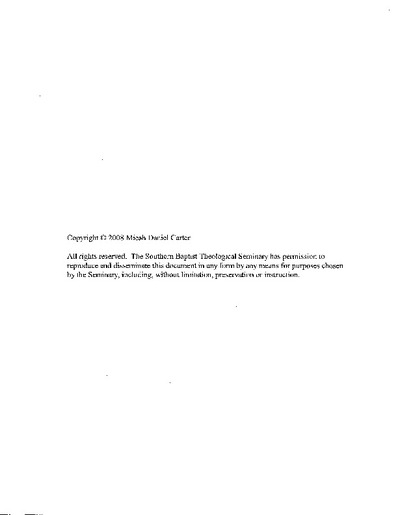An evangelical analysis and critique of feminist Christology
Abstract
This dissertation analyzes the person and work of Christ in feminist theology, with particular attention to feminist critiques of traditional Christology. Chapter 1 is a brief introduction of the dissertation's thesis and the methodological commitments from which the dissertation proceeds.
Chapter 2 provides an investigation and analysis of feminist theological method. Special attention is given to the influential work of Elisabeth Schüssler Fiorenza and Rosemary Radford Ruether. The sources and norms of feminist theology are considered also. Chapter 2 concludes with a discussion of the importance of feminist theological methodology for feminist Christology.
Chapter 3 analyzes the person of Christ in feminist theology. Particular consideration is given to feminist arguments against the maleness of Jesus, as well as their alternative proposals to make Christology more inclusive of women. The chapter also offers a sustained evangelical response to the feminist ideas regarding Christ's person.
Chapter 4 examines the work of Christ in feminist theology. The feminist contention that the cross is "divine child abuse" is addressed. Feminist assessment of classical atonement theories and alternative perspectives for understanding atonement are discussed. The chapter also challenges and answers the feminist allegation that traditional atonement theology grounds the perpetuation of violence and abuse.
Chapter 5 assesses the influence of feminist criticisms within evangelicalism, especially among egalitarians. The chapter demonstrates egalitarian doctrinal revisions on the basis of an acceptance of feminist criticisms in the theological loci of theology proper, bibliology, and ecclesiology. Finally, emerging Christological revisions are considered, specifically related to the egalitarian resistance to the maleness of Jesus and also to a penal substitutionary understanding of atonement. Chapter 5 concludes that feminist criticisms are unacceptable for evangelical Christological formulation.
Chapter 6 concludes the dissertation with a brief summary of feminist Christology and evangelical responses, and offers recommendations for further study in this and related areas.

